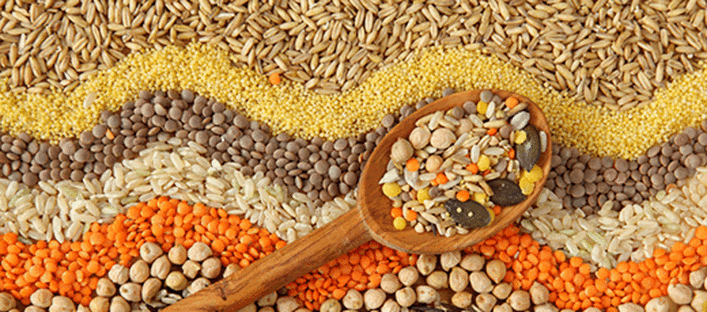|
by Eric Ottenbreit, D.PT
Stress can eat away at you. We’ve all been there. Your life may be going along as fine as it can be. Your job, your home, your family they all require attention and care. Daily stresses add up but you’re able to find a few peaceful moments within the fray. Then one day, the unexpected can happen -insert unforeseen and difficult life event here-. Suddenly, life has turned you on your head. The icy grip of anxiety sinks into your chest. You can't eat, you can't sleep, even breathing is difficult. Life has a way of being a roller coaster with many harrowing twists and loops that violently disrupt your emotions and ability to function minute to minute. Before life can be rebuilt, before deadlines can be met, before difficulties can be overcome you have to take care of yourself. Make your wellbeing a priority. The good news is, no matter how difficult life gets, we can still be proactive on our own behalf. At Staszak Physical Therapy & Wellness Center, we not only help reduce and manage pain in order to restore your function, we also encourage our clients to consider making positive choices throughout the day that may have an overall positive effect on mood, lifestyle, and ability to move forward from wherever you may be. Proactive ways to reduce stress at home: Meditation: Meditation has been used for centuries as a way of calming the mind and body. Psychology Today reports that research continues to develop about the positive effects of meditating for as little as 15 minutes daily can create “a pattern indicative of greater positive, approach-oriented emotional states” that can profoundly reduce daily stress. Dietary Changes: What we eat and the way we eat can contribute greatly to the body’s overall inflammation levels and body weight composition. “Stress Eating” is often used as a quick means of trying to deal with some perturbance to the flow of daily life. Quick snacks, processed convenience foods, and calorie dense drinks are often the likely go-to to get us through those tough moments. Instead, consider switching to an anti-stress eating pattern. Discussing and considering various strategies for including foods with greater nutrient density and meal prepping may reduce those moments of weakness. Choosing foods that reduce inflammation and start moving our bodies toward the ideal body composition can have a tremendous effect on stress and overall health and wellness. Water Intake: This is a simple one. In our current culture of ever-increasing productivity demands, we often reach for that next cup of coffee or tea instead of water. Our organs, brain included, require copious amounts of water to help with metabolic demands and nutrient bathing. Various hormones, including the stress hormone cortisol, can be better regulated with proper hydration. Increasing your water intake to the recommended ½ to 1 fluid ounce per pound body weight daily can take that stress down another notch. Caffeine Reduction: Caffeine reduction ties in closely with water intake and retention. Caffeine is a known diuretic, meaning it can cause in increase in urination when consumed. Knowing that we generally don’t drink enough pure water, increased caffeine ingestion can promote further levels of chronic dehydration. Not drinking enough water can cause undue and unwanted stress to our bodies and our mind. Exercise: I can never say enough about the positive benefits of movement and exercise. Something as simple as a daily walk may greatly improve the body’s ability to cope with stress. Improving blood flow, strength, flexibility, and body composition can all have profoundly positive effects on health and stress. If you’re unsure of where to start just know that there is no “one size fits all” approach to movement and exercise. Considerations to keep in mind when choosing a movement program include, different body types, muscle density types, strength profiles, fitness goals, age, mental state and motivations, and many more. When you decide to begin or are continuing your movement and fitness journey, if you’re experiencing pain or difficulty let us at Staszak Physical Therapy thoroughly evaluate your injury or issue and provide guidance, help, and healing. Let us help you learn to reclaim your movement potential, discuss strategies for dealing with stress, and returning you to doing the things you love. *Disclaimer. This blog should not be used as medical advice or diagnosis. If you plan on making changes in your lifestyle, diet, and exercise, please consult your physician to see these any of these changes are appropriate for you.
0 Comments
Of all the recipes we have shared on our blog, this one comes the closest in taste to the wheat-containing original to satisfy even the most demanding wheat-lover’s craving. Makes 8 to 10 servings: CAKE
ICING
Directions:

Struggle to manage a healthy breakfast in the morning? This delicious wrap can be prepared the evening before and refrigerated overnight as a convenient and filling breakfast.
Makes 1 serving:
Directions:
Does it make sense for our diet to be based around grains?
Compared to vegetables, grains contain very few nutrients. Grains are also packed with an unhelpful substance called phytic acid, which prevents nutrient absorption by binding essential minerals in the intestine (1). The agricultural revolution shifted the gears of our human diet so that as populations grew, we could have a steady source of calories. As we moved away from the country into villages and cities, we no longer had to chase after food as hunter-gatherers, but could grow it where we wanted to live. As agricultural practices were modernized for mass efficiency, wheat took over as the master grain of the western diet. Wheat never has been a high quality source of nutrition, but today the grain is so processed that it lacks any benefit whatsoever. Due to the popularity of wheat, we take it for granted that it has become a major contributor to common health challenges. The problem with modern wheat, as well as rye and barley, is that each is a massive source of gluten, a protein that many people may be sensitive to. Gluten causes issues for many of us because it damages the lining of our intestines, which is not only painful, but also causes stool inconsistency and unnecessary fatigue (2). Brain disorders have also been found to be associated with gluten consumption such as schizophrenia and cerebellar ataxia (3, 4). To figure out if you have an issue with gluten it must be eliminated from your diet for two to three weeks before being reintroduced. Gluten is a large protein that can take a long time to eliminate from your system, so you're better off eliminating it for as long as possible before reintroducing it. We found that many of our clients experience such a significant boost in energy after eliminating gluten and grains that they decide to steer away from both completely.
|
Our BlogRead here for more information about our practice, industry news, tips for taking care of your body, and great recipes for healthy living. Categories
All
|





 RSS Feed
RSS Feed